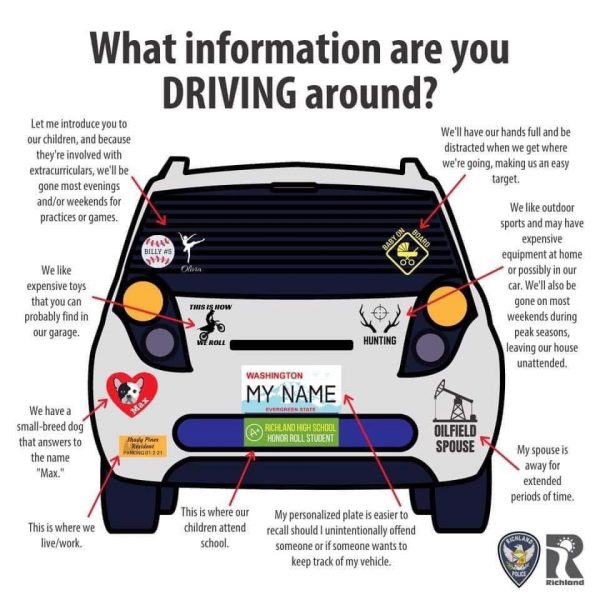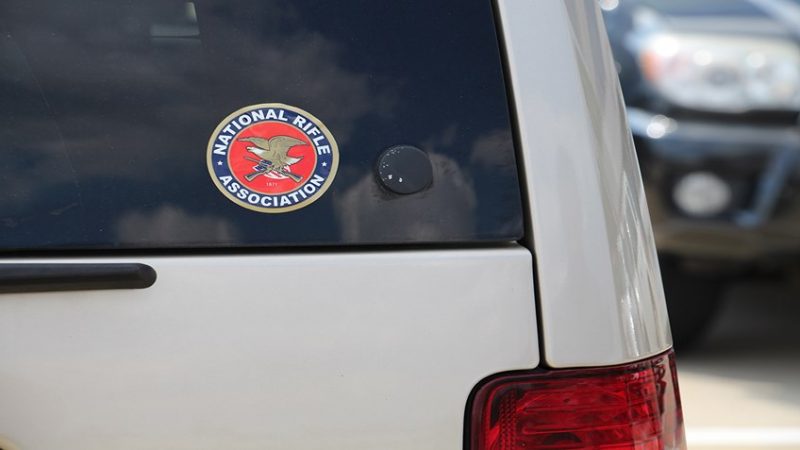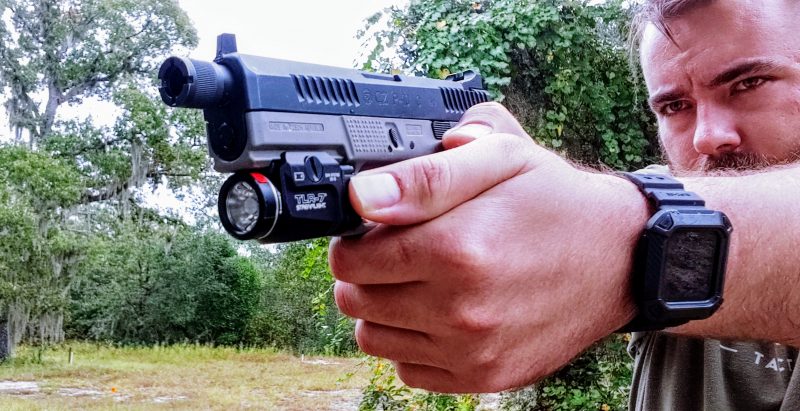Reduce the chance of a deadly encounter with good information management.
![]()
![]()
Defense works best in layers. It doesn’t matter if we are talking about home defense or digging in a fighting position and protecting an airbase. A layered defense involves a variety of different components. When we talk self-defense, we often involve defense in layers in ways we may not know or realize. When we strap a gun on, concealed in a Crossbreed holster, that’s one component. Another is locking home and car doors; a third is being situationally aware. Those are all components of successful self-defense. Today we are going to be talking about an often ignored component, OPSEC.
What’s OPSEC?
OPSEC stands for Operational Security, and it’s a line of thinking that started in the military. Ever hear the phrase, “loose lips sink ships”? Well, that’s OPSEC. While the military might have given it a fancy-dancy name and applied it to global warfare, it’s high time you begin practicing it as a defensive layer.

The Military breaks OPSEC down into five steps.
1 – Identify Critical Information.
2 – Identify the threat.
3 – Assess vulnerabilities.
4 – Analyze the risk.
5 – Develop and apply countermeasures.
You can use these same steps to create Operation Security around your personal life and make it part of your home and self-defense plans.
Personal OPSEC
You may be violating OPSEC and not even know it. It might be wise to take a look at the personal information you offer the world. One I always take note of is the back of a vehicle. Bumper stickers tell tales whether you know it or not.
Your bumper sticker family tells me just how many people are in your family, including your kids. Those same kids are cheerleaders…so you won’t be home on Friday nights when football is in season. Hmm, an Honor roll student at XYZ school? So now I know where to find your kids. Oh, you guys like to go dirt biking? Sweet, those are expensive and easy to steal. That big NRA sticker tells me you might have a gun in the car I can steal when you park at Walmart. Do you get why bumper stickers violate OPSEC? You’re giving potential attackers way too much information.

Bumper stickers tell stories, and they can often reveal sensitive information to the observant criminal. Keep it quiet, keep it plain, and don’t draw a lot of attention to yourself. In these divided times, supporting political parties, organizations, or individuals can even make you a target of partisan violence.

The Dread of Paperwork
Always be cautious about how personal identifying information is stored. Personal identifying information, or PII, should be handled with care. Leaking PII can often be a huge violation of proper OPSEC. You’d be surprised how much information you share about the most mundane things. You often can’t avoid sharing the information, but you can often help contain information.
For example, when I had a clothes dryer delivered, my delivery paperwork had my name, address, and driving directions. When the guy left, I asked for those forms and ensured they were destroyed and unusable. Just tossing them in the trash wasn’t enough for me to feel secure.
Being Social
Always be cautious about what information you share in casual conversation. Lots of the classic military OPSEC posters warn about this for a reason. When meeting someone you barely know, it might get easy to start talking about random subjects to kick off the conversation and accidentally deliver too much information. You might start talking about your neighborhood or your hobbies, which might include expensive, easy-to-steal stuff, and more. Next thing you know, he has a pretty good working knowledge of enough of your personal life to wreak havoc if he’s so inclined. It’s not rude to keep personal information personal.

The same goes for being cautious about who you invite to your home. Modern dating apps, ride-sharing apps, food delivery apps, and more have made it very easy to invite someone who’s basically a stranger to your home. A Tinder page might tell you the guy or gal likes the Office and Dogs but will likely leave out the fact they have a history of violence, theft, and beyond.
Operational Security and Social Media
Social media has us oversharing to an extreme degree these days. It’s easy to fall into it, and I don’t blame you. Social media will often have you sharing with friends and family and unknowingly sharing with tons of potential strangers. Social media is the bane of OPSEC.
Recently I’ve seen trends like vacation countdowns. You know stuff like “10 days ’til Hawaii!” I’d be excited too, but that’s a countdown that tells everyone when you leave, including those who have a criminal interest in your empty home.

On the vacation subject, it’s also wise not to start posting those vacation pictures until you’re home. The world can wait for your pictures of swimming with dolphins for a few days. The bane of my existence is other people “Checking in” and tagging me. Checking in often tells people in real-time where you are.
I’m not cool with that. People don’t need to know I’m an hour from home eating some sweet Greek food. Friends and family tagging me and checking me in led me to lock down my social media even more. People can’t tag me or check me in without my permission.
Locking down social media is a wise move in general. Take your profiles off the public list, and make it only findable and viewable by the friends and family you want to find it. Or, simply don’t post personal matters on social media in general. Regardless, locking down your social media is a critical component of OPSEC.
Loose Lips Sink Ships
OPSEC is the informational component of your layered defense. It’s often external and, when used properly, prevents you from ever even being the subject of interest for bad people. It’s not hard to do, it just requires mindfulness. Be mindful of what you share and who you share it with. When in doubt, lock it down and keep it quiet.
ABOUT THE AUTHOR:

Travis Pike is a former Marine Machine gunner who served with 2nd Bn 2nd Marines for 5 years. He deployed in 2009 to Afghanistan and again in 2011 with the 22nd MEU(SOC) during a record-setting 11 months at sea. Travis has trained with the Romanian Army, the Spanish Marines, the Emirate Marines, and the Afghan National Army.
He serves as an NRA-certified pistol instructor and pursues a variety of firearms-based hobbies.
![]()
You may also enjoy these popular articles:




©MTC Holsters, LLC and CrossBreed Holsters Blog, 2021.
Unauthorized use and/or duplication of this material without express and written permission from this site’s author and/or owner is strictly prohibited. Excerpts and links may be used, provided that full and clear credit is given to Travis Pike and the CrossBreed Blog with appropriate and specific direction to the original content.
![]()





